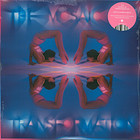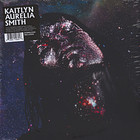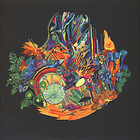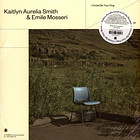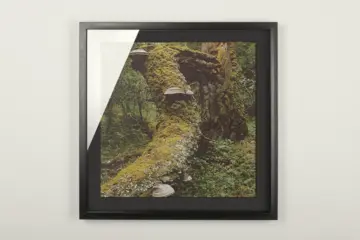Machine music. The word couplet is strong because it evokes strong associations. Kraftwerk provided a highly descriptive anthem for the genre with their electronic folk song »Wir sind die Roboter«: Music made with machines (synthesizers) and apparently intended for machines (robots) as an audience: »Now we want dance mechanics«. Other musicians, such as Brian Eno, radicalised this idea further with concepts like generative music, designing machines that endlessly create their own music with little human input. And as early as at the beginning of the 20th century, the composer Alexander Mossolov presented his work »Iron Foundry«, an orchestral music to be played by people, which sounded similar to factory machines. A fuzzy term, this machine music, so it seems.
American Kaitlyn Aurelia Smith also makes machine music, as do pretty much all of her electronic music peers. However, her work is far removed from man-machine fantasies in the conventional sense, even if her sounds connect man and machine in a very unique way.
The composer, who grew up on the remote Orcas Island in Washington State and now lives in Los Angeles, uses powerful machines. She prefers to use modular synthesisers like the Buchla 200e or the Buchla 100, bulky boxes with lots of cables that can be plugged in and out repeatedly in ever new and different ways. The machines surround her as she makes music – as does the electricity that powers them. The stream from which Smith gently draws her loosely knitted tonal fabrics can only be imagined as a gentle stream.
She describes her latest album, »The Mosaic of Transformation«, as a tribute to electricity. This is achieved with the slightly ethereal singing of her clear, bright voice and the pulsing, chugging, undulating and billowing sounds grouped around it, which don’t always sound like artificial circuitry, but sometimes like electric strings or wind instruments. A friendly electricity, no doubt. When asked, she writes: »For me, electricity is what animates everything. I gravitate towards it out of admiration and respect for its life-giving power.«
»For me, electricity is what animates everything. I gravitate towards it out of admiration and respect for its life-giving power.«
Kaitlyn Aurelia Smith
Even the »mosaic« in the title, which refers to the connection between the individual »movements« on the record, ultimately leads her back to electricity: »The creative process for this album always took place piece by piece. Taken together, all these sentences create an expression, just as the sounds, taken together, create music. Connection is another aspect of electricity that inspires me. Without electricity, for example, a synthesiser is just a collection of components in arrangement. But when current flows through it, it creates connections.«
For Kaitlyn Aurelia Smith, making music has always been about combining the acoustic and the visual. She even developed a visual language of movements for «The Mosaic Of Transformation». These accompany the sound in a very natural way: «I always see images when I write music, and I always see these images when I first hear the music internally.»
On the cover you can get an idea of what these movements look like (»movement« in both the physical and musical sense). On the front, for example, you can see the artist in one of the poses she has developed, mirrored three times. Since the way she arches her back resembles a variation of the »wheel« as a yoga position, another connection could be made with her album »Tides: Music for Yoga and Mediation« from last year. Her take on this: The album is a gift to her mother, who is a yoga teacher.
Besides her family background, Kaitlyn Aurelia Smith has another motivation for this kind of connection between music and the human body: »Both are made of vibration and electricity.« Some of the postures typical of yoga are also incorporated into her music. For her, therefore, the intention behind the album is »to share acts of kindness with others through sound«. The journey there took her through twelve different versions, which were like a »purification process« for her. As a consequence, she kept none of the previous versions. For those who may find this all a little esoteric, Kaitlyn Aurelia Smith responds by saying that she does not consider herself a New Age musician in any way. »But I don’t mind others using the expression.«


